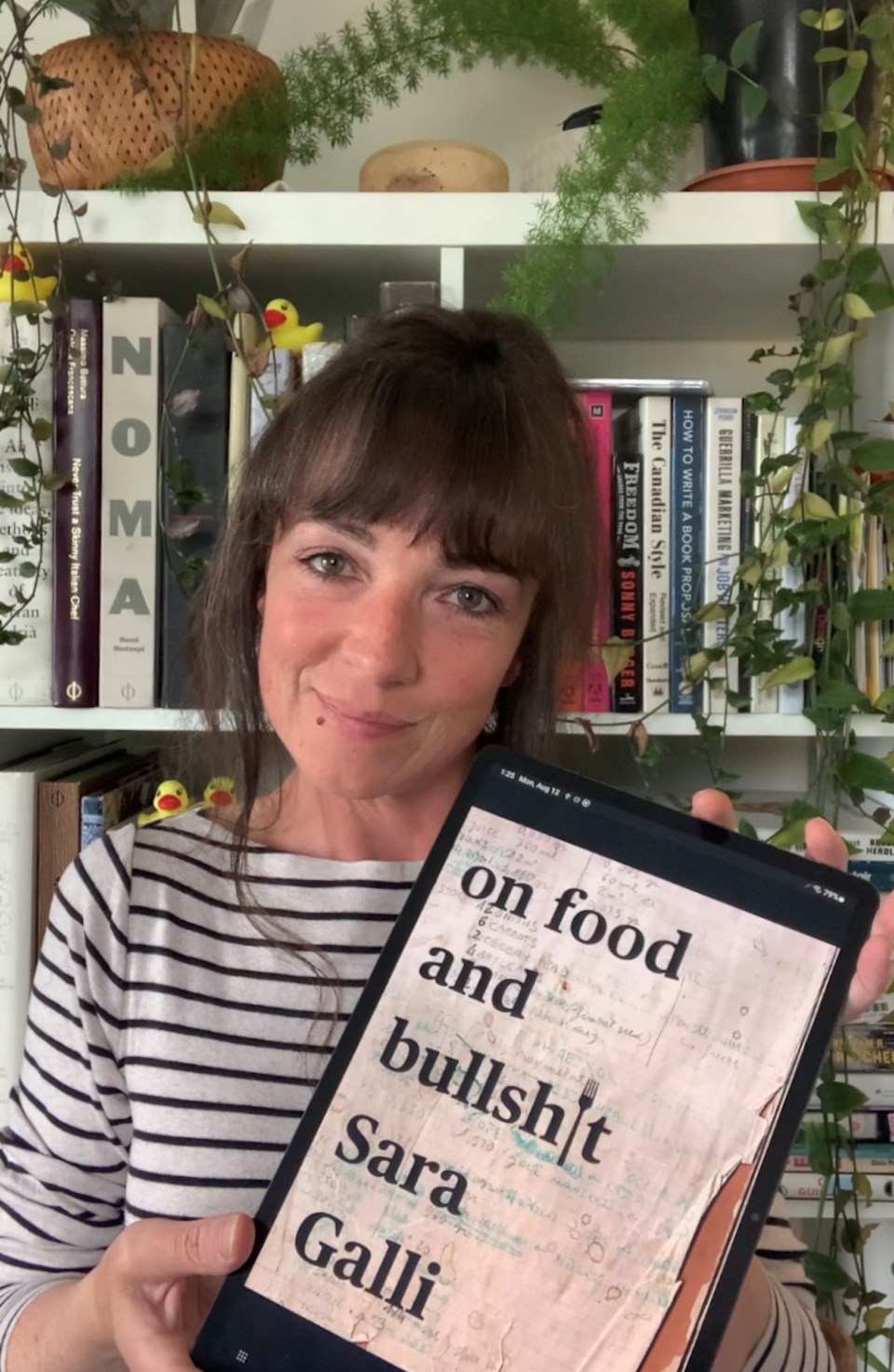A newly published collection of essays by a culinary industry insider from Gibsons spills unvarnished truths about the world of professional cookery. In her e-book On Food and Bull**** (available on the Kobo e-reader platform), Italian-born Sara Galli minces everything except words.
“There are things that a chef cannot say, because they have to be a little diplomatic,” said Galli. “But in my point of view, I can be a little more honest and uncover something from the underground.”
Galli, who became a globetrotting adventurer after graduation from high school, got her start in the food industry as a way to pay for her travels. As a child she was inspired by a tale from her great-grandfather’s brother: during the Second World War, he worked in the kitchen of a prison camp and survived by eating potato skins. The youthful Galli concluded that kitchen work meant lifelong food security.
She enrolled in culinary school. But her keen-eyed observations about restaurant culture resulted in a growing sense of unease. “It’s one of the most problematic industries, especially after the pandemic,” she said. “There is a lot of bullying and mental health struggles, but not a lot of things that can be said publicly. It’s almost a taboo sometimes.”
“In the kitchen there’s no time,” she writes in the book, adapted from a series of online blog posts. “And it drives me bananas.” She documents the personal impact of commercial food preparation: a distressing lack of harmony among ingredients and techniques. The relentless grind left her feeling dishonest and disloyal to her own values.
As a coping strategy, Galli returned to her origins as a dishwasher and prep cook. The onslaught of high-pressure interaction was momentarily lessened. She found that the dish pit could become a setting for creativity and empathy between team members.
The best way to train new kitchen staff, she believes, is to evaluate their dedication to the messiest and most rudimentary tasks.
Eventually Galli grasped the opportunity to assemble her collected philosophies in book form. Her self-published cri de coeur became a way to leave the industry that had shaped her philosophies of good taste, respect for conscientiously prepared dishes and hard work. “If you want to be successful in a job, work well,” she advises. “If you want only to move up, don’t work too much.”
She now plans a midlife pivot to the agricultural sector, with dreams of becoming a lawyer specializing in agronomics.
Her book’s title was inspired by the seminal 1984 publication by American food science writer Harold McGee (On Food And Cooking: The Science And Lore Of The Kitchen).
Galli’s sprinkling of blue language, she explained, stems from the plainspoken culture of fast-paced industrial cooking. Her writing reflects the breakneck tempo of high-volume gastronomy: earthy wisdom is delivered in bite-size portions (“Don’t empty the garbage bins before the night service and the bags are heavy like a dead fat Hells Angels biker”).
Along the way, she serves up insights from her Italian heritage (“What drives me bananas is... being part of the 100 Best Canadian Restaurants and calling taglierini ‘spaghetti’).
On Food is an unapologetically-opinionated and highly-spiced companion for the human discipline that shaped Galli, burned her out, yet remains a source of inspiration.
“Cooking is not a job,” she writes. “It’s the job.”
The digital version of On Food and Bull**** is available for purchase by e-readers from the kobo.com online store.



